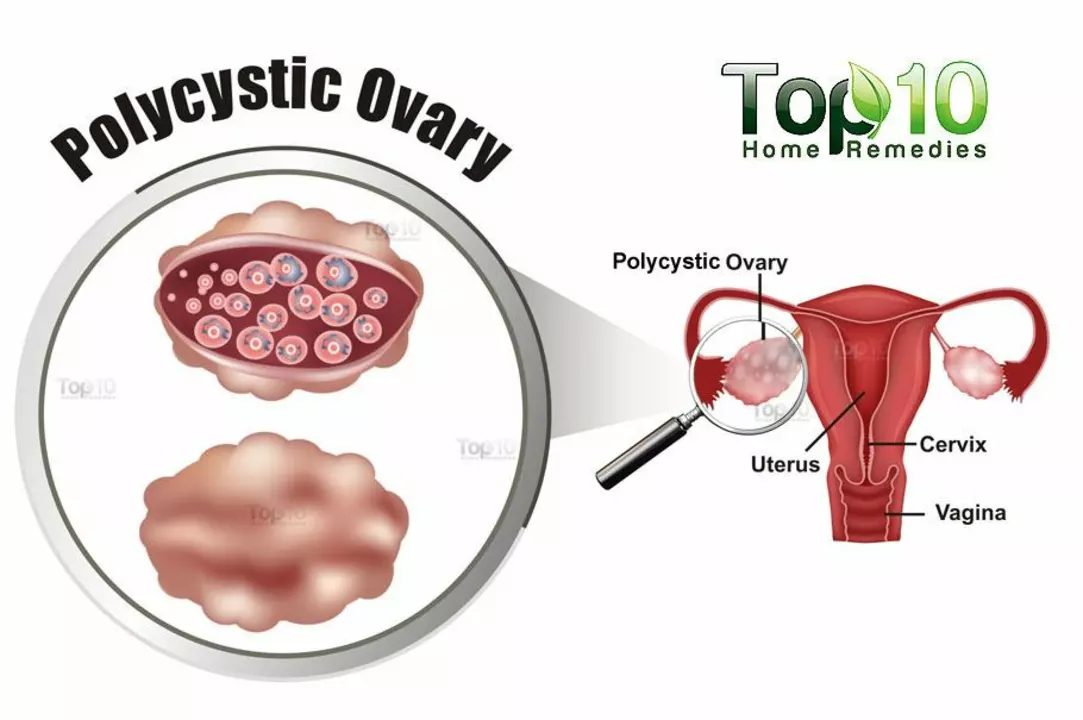Polycystic Ovary Syndrome (PCOS): Quick Guide
If you’ve heard the term PCOS but aren’t sure what it really means, you’re not alone. It’s a hormonal condition that affects many women of reproductive age. The main signs are irregular periods, extra hair growth, acne and sometimes difficulty getting pregnant. Understanding why these things happen can help you take control rather than feeling stuck.
What is PCOS and why it matters
PCOS stands for polycystic ovary syndrome. Inside the ovaries, tiny follicles grow but often don’t release eggs. That leads to higher levels of androgens (male‑type hormones) which cause the skin and hair changes many people notice. It also messes with insulin, so some women develop resistance that can raise blood sugar over time.
Why should you care? Besides the visible symptoms, PCOS raises the risk of type 2 diabetes, high blood pressure and heart disease later in life. It can also affect mood because hormone swings influence serotonin levels. Knowing these links makes it easier to spot early warning signs and talk with a doctor before bigger problems show up.
Managing PCOS day‑to‑day
The good news is you don’t need a miracle cure – small, consistent habits work best. Start with food: aim for balanced meals that include protein, fiber and healthy fats. Cutting back on sugary drinks and refined carbs helps keep insulin steady, which often eases period irregularities.
Exercise doesn’t have to be intense; a 30‑minute walk or quick home workout three times a week can improve how your body handles insulin and lower androgen levels. If weight is a concern, even a modest loss of 5‑10 % can make periods more regular and skin clearer.
When lifestyle tweaks aren’t enough, doctors may suggest medication. Birth control pills are common because they regulate cycles and lower androgen production. Metformin, a diabetes drug, often helps with insulin resistance. In some cases, anti‑androgen meds or fertility treatments become part of the plan.
Stress management is another piece of the puzzle. Practices like deep breathing, yoga or simply taking time for hobbies can calm hormone spikes that worsen symptoms. Sleep matters too – aim for 7‑8 hours each night to keep cortisol (the stress hormone) in check.
Finally, keep a symptom journal. Note when you notice changes in your cycle, mood, skin or energy levels. This record helps you and your healthcare provider spot patterns and adjust treatment quickly.
Living with PCOS can feel overwhelming at first, but breaking it down into manageable steps makes a big difference. Focus on steady diet improvements, regular movement, sleep quality and open communication with your doctor. With the right plan, many women find their symptoms shrink and their overall health improves dramatically.

The Relationship Between Fertility and Polycystic Ovary Syndrome (PCOS)
- Jun, 2 2023
- 16
As someone who has been researching PCOS, I've discovered that this hormonal disorder can have a significant impact on a woman's fertility. It's estimated that nearly one in ten women of childbearing age are affected by PCOS, making it a common cause of infertility. The hormonal imbalances associated with PCOS often lead to infrequent or absent ovulation, making it difficult for women to conceive. Furthermore, PCOS can also increase the risk of miscarriage and other pregnancy complications. It's crucial for women with PCOS to work closely with their healthcare providers to manage their symptoms and increase their chances of a successful pregnancy.
Categories
- Health and Medicine (62)
- Health and Wellness (57)
- Medicine (37)
- Women's Health (11)
- Mental Health (9)
- Men's Health (7)
- Beauty and Wellness (4)
- Health Information (4)
Archives
- February 2026 (8)
- January 2026 (25)
- December 2025 (28)
- November 2025 (25)
- October 2025 (27)
- September 2025 (14)
- August 2025 (3)
- July 2025 (2)
- June 2025 (2)
- May 2025 (3)
- April 2025 (4)
- March 2025 (4)
- online pharmacy
- medication safety
- dietary supplement
- health benefits
- dietary supplements
- generic drugs
- prevention
- fertility
- online pharmacy Australia
- side effects
- QT prolongation
- medication side effects
- diabetes medications
- GLP-1 agonists
- nocebo effect
- brand vs generic
- treatment
- treatment options
- benefits
- connection
